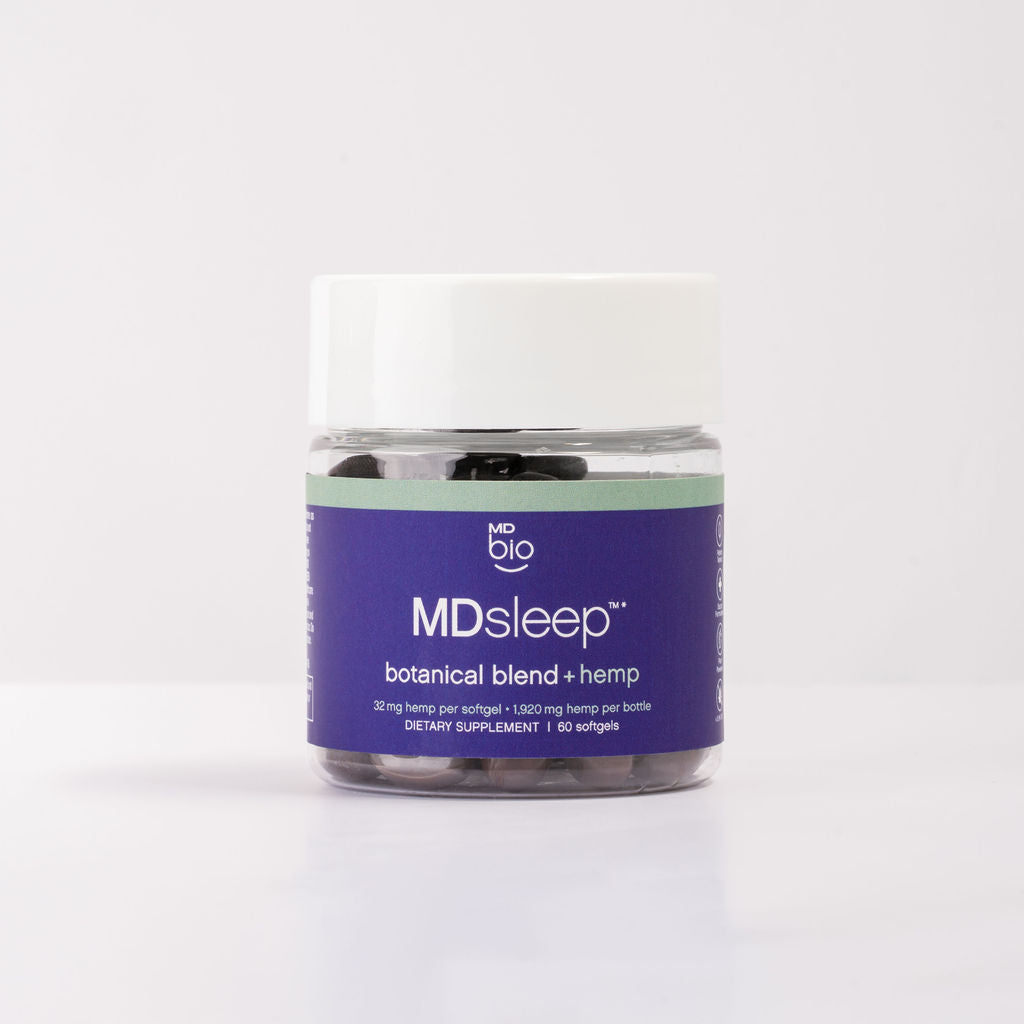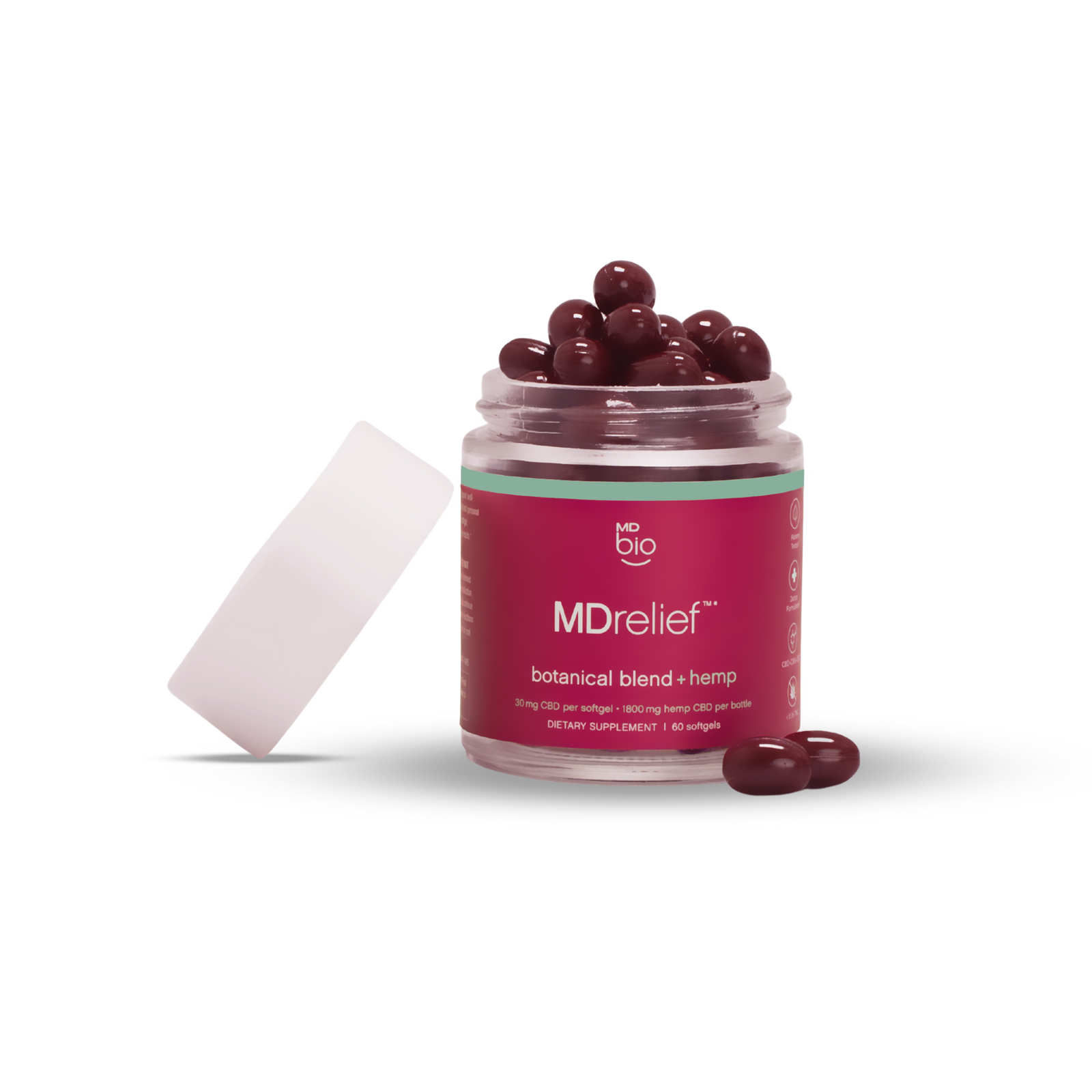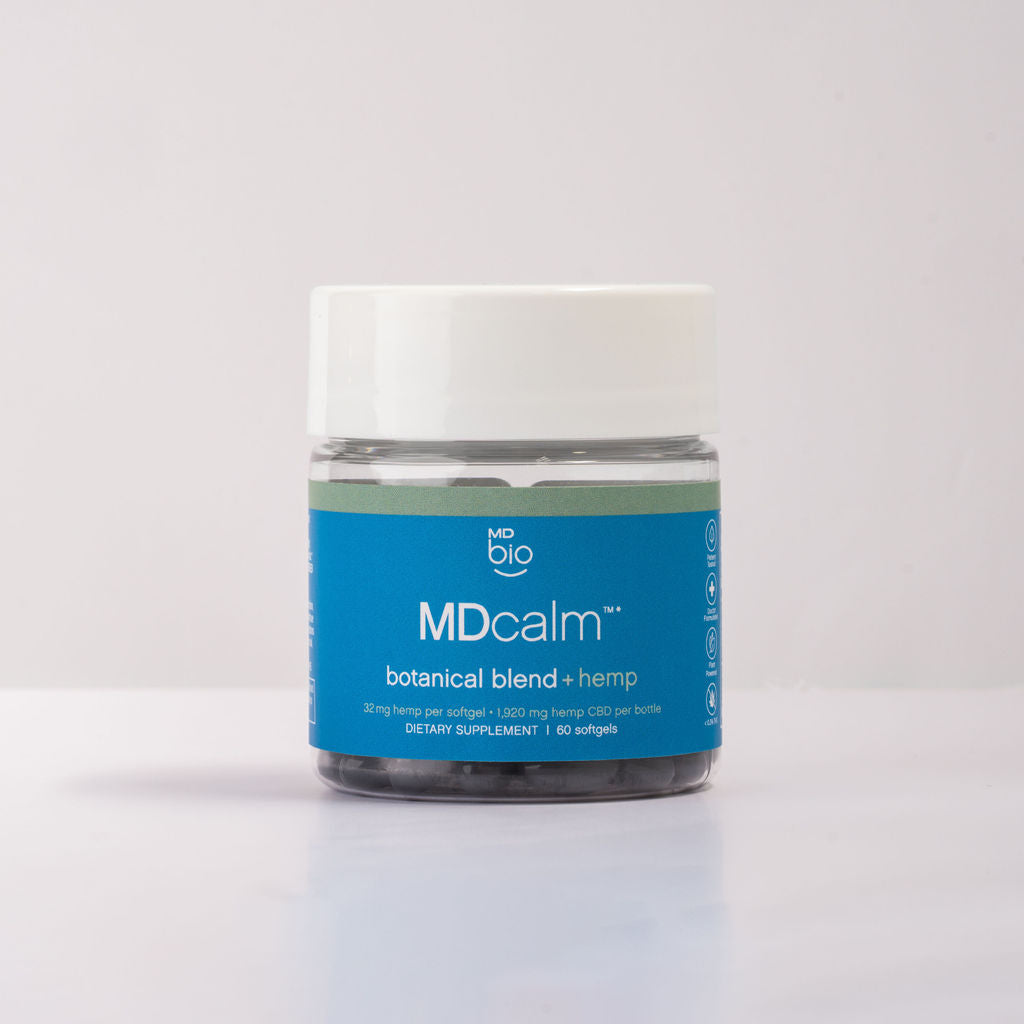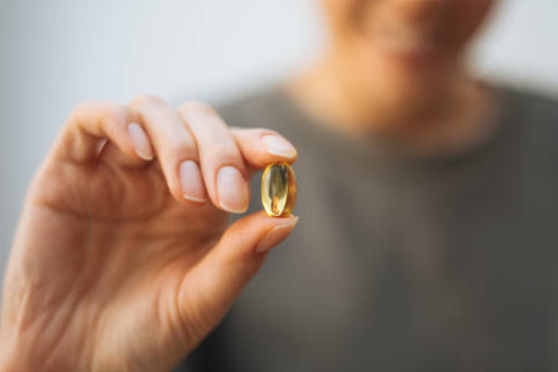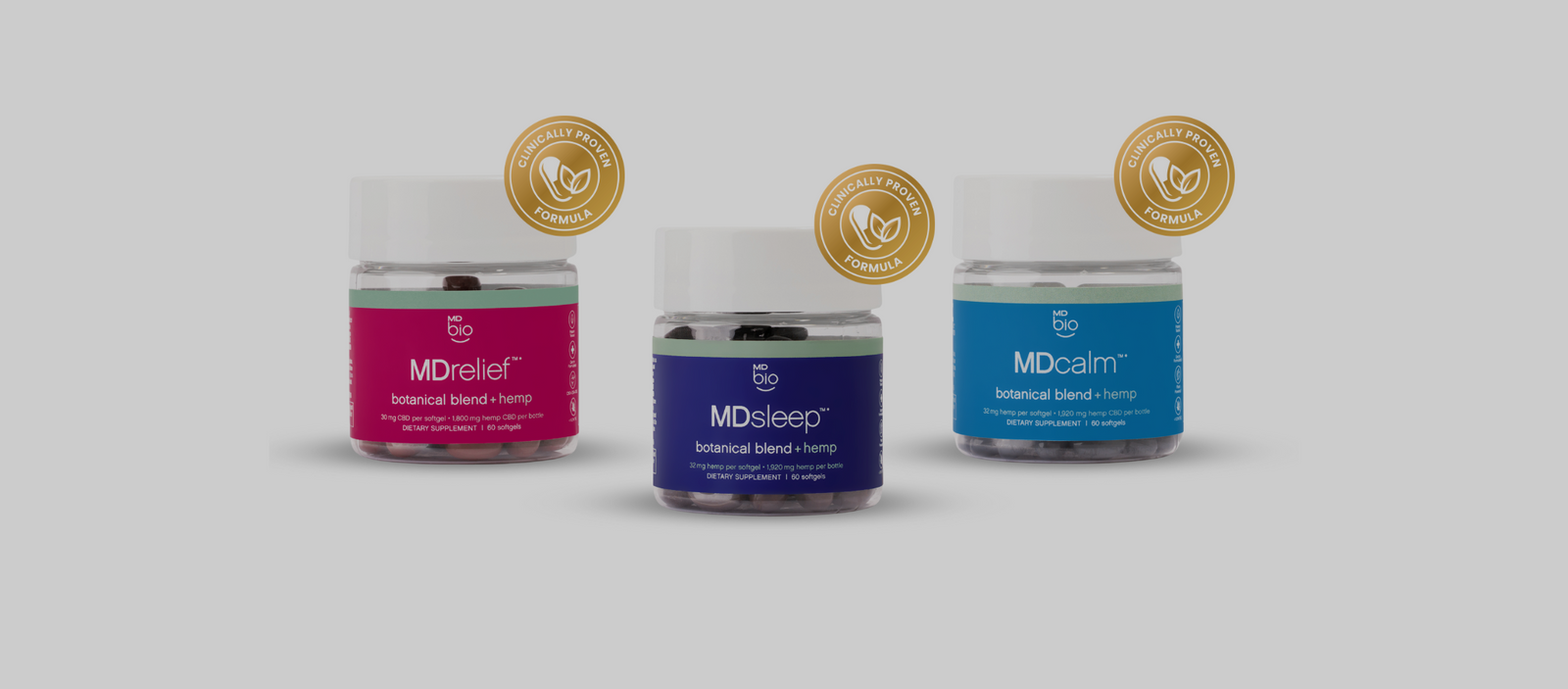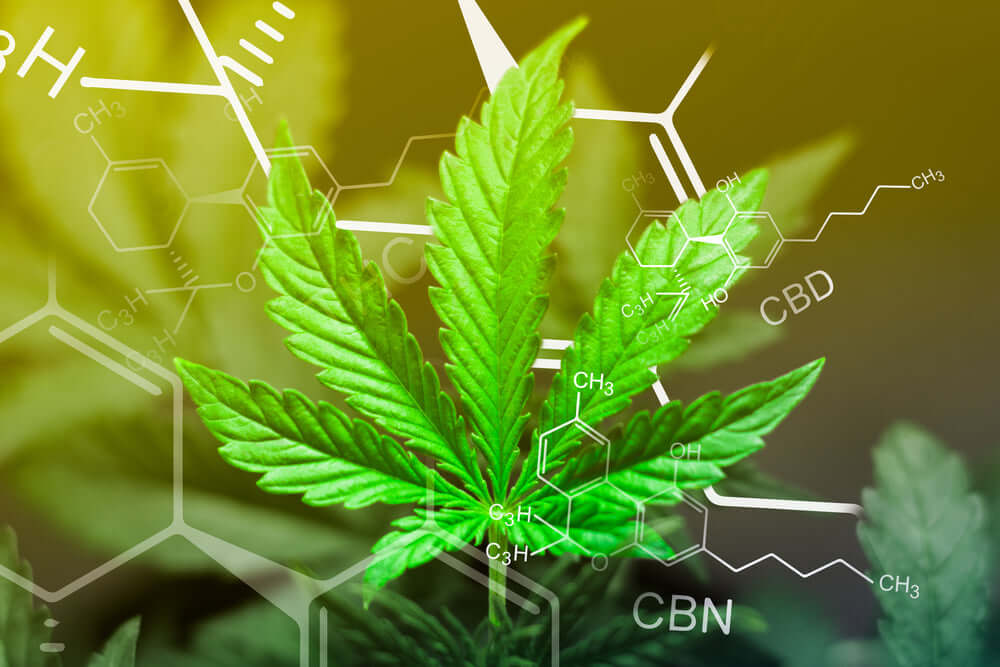
Thanks to a combination of changing laws and a rising interest in naturopathic medicine, more and more cannabinoid products are hitting the shelves across the country. Most people are familiar with the most famous cannabinoid: CBD, a potent and popular ingredient in many herbal remedies and supplements.
However, a wealth of other substances derived from the hemp plant may have powerful healing properties. Like CBD, these other cannabinoids have all been federally legalized due to the 2018 Farm Bill. As a result of this changing legislation, we will likely see a more significant influx of multi-cannabinoid products as more research is conducted on the healing power of hemp.
What are the differences between different cannabinoids? And how can you determine which one may help the most to alleviate your particular symptoms?
Here's a rundown comparing three prominent hemp derivatives, including a guide to deciding whether CBN vs CBD vs CBG may be the best product for your individual needs. We'll also cover the possible benefits and downsides of consuming all three cannabinoids in the form of full-spectrum hemp oil rather than seeking out products that isolate one cannabinoid over another.
What is CBN?
While its cousin CBD enjoys a much wider prominence and popularity,cannabinol (CBN) was actually the first cannabinoid to be discovered. It was first encountered by researchers in the late 1800s and was successfully synthesized in a laboratory in the mid-1940s.
Unlike other cannabinoids, CBN isn't found naturally in living hemp plants. Instead, cannabinol forms due to THC degrading when cannabis plants are exposed to light or heat. A plant gains greater CBN concentration as it ages and dries; young and recently harvested hemp plants have only trace amounts of the substance, usually too little to be harvested.
Cannabinol has been historically looked down upon by recreational users of THC due to the fact that it forms when the hemp plant starts to break down, rendering the herb's sought-after psychoactive properties less potent. This negative image among recreational users may have contributed to CBN's lack of popularity.
CBN is considered to have mild psychoactive properties about a quarter as potent as THC. It has also been shown to have sedative properties when combined with other soporific herbs, making it an increasingly popular choice among people with insomnia. Other potential benefits include bone growth stimulation, pain relief, inflammation reduction, and immunosuppression.
When considering CBN vs CBD, the former is found in much smaller amounts than the latter, which may contribute to its comparative anonymity among herbal remedy users. Still, further research into CBN's soporific qualities may result in a more widespread appreciation for cannabinol as a valuable natural sleep aid. Furthermore, combining CBN and CBD into one sleep treatment may yield a more robust and beneficial result than consuming either individually.
What is CBD?
By far the most prevalent cannabinoid on the market, cannabidiol (CBD) has become nearly ubiquitous over the past few years. Shops dedicated to this hemp derivative have popped up all over the country, and online sales of CBD are through the roof. The CBD industry was worth nearly$5 billion in the United States in 2020, just two years after the Farm Bill was passed, and is expected to continue to grow exponentially in the years to come.
One of the main factors differentiating CBN vs CBD vs CBG is their ease of extraction and relative prevalence within hemp plants. Unlike CBN and CBG, CBD is abundant and easy to produce, making it the most economical cannabinoid after THC. The fact that it's relatively simple to extract likely contributes to CBD's vast popularity compared with other hemp products.
One of the reasons CBD has gained so much popularity as a herbal remedy is that it seems to relieve many symptoms that are often resistant to other treatments. Some of these symptoms include anxiety, insomnia, arthritis, chronic pain, inflammation, addiction or withdrawal. Patients who don't want to take a cocktail of pharmaceutical or over-the-counter remedies to address these symptoms may find relief from multiple or all of them by taking CBD.
Despite its apparent versatility, CBD has only been approved by theFDA for one purpose, which is treating childhood epilepsy disorders like Dravet syndrome and Lennox-Gastaut syndrome. These disorders are notoriously unresponsive to medicines, so the discovery of CBD's anti-seizure properties has brought hope and relief to many thousands of people.
Though it shares many medical properties with its cousin THC, CBD's distinct advantage lies in the fact that it does not have psychoactive properties. That means it doesn't produce a high, making it safer and less inhibitory to use.
To date, CBD has shown no signs of creating dependence or being habit-forming even for regular users, though some people may experience mild to moderate side effects. These side effects include dry mouth, diarrhea, drowsiness or sleepiness, and a more difficult time focusing on tasks. Some users also report a decrease in appetite while taking CBD.
What is CBG?
Cannabigerol (CBG) makes up less than 1% of cannabis, making it rare and more difficult to synthesize than other cannabinoids. As a result, CBG products tend to be more expensive than other hemp-derived remedies, which has contributed to CBG's relative anonymity as compared to CBN or CBD. However, CBG has several potentiallybeneficial properties in its own right that are worthy of further study.
Discovered in a lab in 1964, CBG is most noteworthy for the way it interacts with our bodies' endocannabinoid systems (ECS), which is a cell-level signaling network that helps regulate appetite, digestion, the immune system, and more. Research has shown that CBG can bind with two important cannabinoid receptors in our cells, CB1 and CB2. This unique ability to bind to both receptors may explain why CBG seems to influence neurotransmitters that control pain response, sleep, appetite, and our ability to get things done.
Like CBG, THC also affects the CB1 and CB2 cannabinoid receptors, but in a way that produces a psychotropic effect. CBG, on the other hand, does not have psychoactive properties, making it more viable as a medical treatment for many users and lessening the chances of it forming a habit or creating a dependence.
Comparing CBN vs CBD vs CBG will demonstrate more similarities than differences between the three. However, CBG stands out because its ability to bind to neurotransmitters may grant it certain neuroprotective properties. Further research is needed to explore CBG's utility as a natural remedy, but the initial responses from patients and scientists show great promise.
CBN vs CBD
CBN and CBD share many properties, but the fact that CBD is much easier to extract has made it more prominent among cannabinoid-based remedies than CBN. Current research supports the notion that combining the two cannabinoids may strengthen the properties of both.
Here are some of the other differences and similarities between these two substances.
Similarities
When comparing the healing properties of CBN vs CBD, it's easy to notice how much they have in common. For one thing, they obviously come from the same plant and are extracted from that plant using basically the same method. Hemp must be dried and aged before either cannabinoid can be distilled.
Both CBN and CBD are thought to be powerful pain relievers, and both have anti-inflammatory properties as well. Since pain and inflammation often go hand-in-hand, these two cannabinoids may be extremely useful in formulating new treatments that can address a broader spectrum of symptoms than the over-the-counter medications we currently use.
Additionally, CBN and CBD are able to confer their medical benefits without producing a high. Their lack of psychoactive properties as compared with THC makes CBN and CBD more accessible for many patients and is likely the main reason why the federal government has been quicker to legalize these cannabinoids as compared to THC.
Differences
The main difference you'll notice when comparing CBN vs CBD is that CBN takes more effort to extract. CBN is also less prominent within the hemp plant than CBD. Finally, CBD has a wider variety of medical applications than CBN.
As far as their different medical uses, cannabinol has exhibited the potential to encourage bone regrowth in osteoporosis patients, while CBD is more useful in reducing or preventing seizures.
It's important to note that cannabidiol has received much more attention in studies than cannabinol; therefore, it's difficult to know the extent to which the substances differ. At this time, however, there are no known side effects of CBN, while CBD has several reported side effects that usually range from mild to moderate severity.
CBD vs CBG
As previously stated, weighing the properties of CBN vs CBD vs CBG all at the same time will show how much they have in common. CBD and CBG are no exception, though they also exhibit a few critical differences in the conditions they treat and the way they function within the ECS.
Similarities
CBD and CBG can both offer pain relief, and both have been shown to have anti-anxiety and stress-relieving properties. Additionally, both cannabinoids seem able to reduce symptoms of insomnia or sleeplessness.
Along with their similar symptoms, CBD and CBG both come from the same source, which is cannabigerolic acid (CBGA). Both cannabinoids reach their final forms when CBGA is exposed to light and heat and begins to break down into other components.
Finally, both cannabinoids have been reported as having comparable side effects. Frequent users of CBD and CBG have stated they sometimes experience dry mouth, reduced appetite, and drowsiness while taking these substances. Though uncommon, diarrhea is another potential side effect of both CBD and CBG.
Differences
There are two major differences you'll spot when comparing CBG vs CBD.
The first difference is that CBG is present in a much lower percentage of the hemp plant than CBD. This makes synthesizing CBG more difficult and expensive, which is why you'll see a much greater presence of cannabidiol products than ones containing cannabigerol.
Other differences between these two substances stem largely from the fact that CBG and CBD stimulate different parts of theendocannabinoid system. CBD interacts mainly with the TVRP1 receptors, which are responsible for regulating pain perception, body temperature, and tissue inflammation.
CBG, on the other hand, is mainly concerned with the CB1 and CB2 receptors, which have more to do with regulating the nervous system and the immune system. That's what seems to allow CBG to mitigate neuropathic disorders such as Huntington's disease.
CBG vs CBN
These two lesser-known cannabinoids haven't received as much attention as CBD, either in the media or through scientific studies. Therefore, it's somewhat more difficult to compare them to each other than to compare either one to cannabidiol.
However, the passing of the Farm Bill has allowed the creators and retailers of herbal medicine more leeway in experimenting with cannabigerol and cannabinol, and anecdotal evidence from natural remedy users points to several potential similarities and differences between the two.
Similarities
Up to this point, comparing CBN vs CBD vs CBG has largely been focused on their relative ease of extraction and the various symptoms they appear to be effective in treating. When examining CBG vs CBN, it's apparent that these two cannabinoids are actually similar in their respective percentages within the hemp plant. Both are much rarer than CBD, making them more expensive to distill and contributing to their relative anonymity as compared to their more famous cousin.
CBG and CBN also share similarities with regard to the symptoms they are able to treat. Most notably, both substances exhibit promising pain relief potential, particularly when combined with other cannabinoids. Both substances may also be able to lessen inflammation, which can provide powerful relief for patients who suffer from conditions such as irritable bowel syndrome.
A final factor that CBG and CBN have in common is the fact that neither one has been studied extensively up to this point in a controlled setting. This lack of scientific interest is largely due to the fact that both cannabinoids are more complicated and more expensive to extract than cannabidiol, rendering them less attractive as economic prospects.
That being said, thanks to the passing of the Farm Bill and the subsequent rise in interest in all forms of cannabinoids, a greater appreciation for the distinct benefits afforded by these two substances is growing. As cannabigerol and cannabinol are subjected to more intensive study, we will likely uncover further evidence distinguishing CBN vs CBD vs CBG from each other.
Differences
The primary distinctions between CBG and CBN are related to the conditions each might potentially treat and the side effects observed when each one is used regularly.
CBG has shown promise as a treatment for various disorders of the brain, most notably Huntington's disease. It has also demonstrated potential antibacterial properties, particularly among microorganisms that are resistant to conventional antibiotics. Finally, CBG may offer some relief from the uncomfortable effects of glaucoma.
Cannabinol, on the other hand, does not exhibit these properties. Instead, CBN has the potential to encourage bone growth, particularly in patients suffering the effects of aging and osteoporosis. CBN also shows more significant promise as a sedative than CBG, particularly when paired with other cannabinoids such as THC and CBD.
CBN vs CBD vs CBG: All Together, Now
Each cannaboid has been studied for it's impact on helping people sleep. Cannaboids often work in a symphony of effects, but here we offer more detail on CBN vs CBD vs CBG for Sleep.We've gone through the various pairings of these three distinct hemp derivatives. They differ in multiple ways, and each substance can be used to treat a different symptom. So what happens when we compare all three cannabinoids at the same time?
When we look at CBN vs CBD vs CBG, they all appear to bond with different parts of the endocannabinoid system. CBN has a slightly higher chance than either CBD or CBG of inducing a psychoactive reaction in patients, although the chance is still much smaller than that of THC. Of the three cannabinoids, CBD seems to have a much more comprehensive range of medical applications; however, that could be explained by the fact that CBD has received much more attention and research than either CBN or CBG.
Based on its interactions within the ECS, CBN may be most beneficial for patients looking for pain relief, particularly from osteoporosis and arthritis. It may help people who suffer from pain-influenced insomnia to sleep better.
CBD products may be best for people who want a more powerful pain medication that can also relieve symptoms of anxiety and depression. If you've had adverse reactions from using THC, talk to your doctor about whether CBD might be a more helpful method of controlling or reducing your symptoms.
Finally, CBG may be helpful for anyone suffering from a neurological disorder and might also help target discomfort and pain associated with glaucoma. CBG may also provide powerful antibacterial properties that counteract the effects of antibiotic-resistant microbes inside the body.
After comparing CBN vs CBD vs CBG, it's easy to come to the conclusion that all three cannabinoids may confer certain benefits to human health. Therefore, rather than ingesting them separately, combining all three substances could be a great solution for people looking for a holistic, all-in-one solution to various common ailments and conditions.
The Pros and Cons of Combining Cannabinoids
Combining CBN, CBD, and CBG may allow us to reap the benefits of each cannabinoid all at once. For example, patients who experience difficulty sleeping due to pain from their osteoporosis may have a much easier time falling asleep after consuming combinations of CBN and CBD.
As a more in-depth example, many people who suffer fromanxiety and depression report appetite issues. Some anxious people have a difficult time eating, while others find themselves unable to stop eating as a result of their condition.
Unfortunately, many current pharmaceutical medications formulated to treat anxiety and depression can further compound these issues. Nausea and indigestion are common side effects of prescription and over-the-counter anxiety and depression medications, along with weight gain and weight loss that could further complicate preexisting appetite issues.
That's where cannabinoids come in. CBN, CBD, and CBG all possess calming properties that help to soothe symptoms of anxiety and depression, and they don't seem nearly as likely as pharmaceuticals to cause nausea or indigestion. In fact, CBG's neuroprotective tendencies may render the substance capable of helping anxious and depressed people exert better control and regulation over their appetites.
As a downside, patients who combine all three of these cannabinoids at once may not be getting as strong an effect as they would if they took them individually. For instance, concentrated CBD oil is considered to be much more potent in its effects than the CBD present in full-spectrum hemp oil. Patients who need immediate relief from intense or debilitating pain might be better off ingesting pure CBD than a more diluted version.
Another thing to consider is that there still hasn't been a significant amount of research into cannabinoids other than CBD. Therefore, combining all three together could result in unforeseen side effects that could negatively impact your well-being.
Finally, there is only one cannabinoid product currently being regulated by the FDA. Therefore, full-spectrum hemp oil and other cannabinoid products may vary significantly from brand to brand. It's important to talk to your doctor before taking CBN, CBD, or CBG, and you should only purchase herbal remedies from reputable businesses that are transparent about their products' ingredients and formulas.
CBN vs CBD vs CBG in Herbal Supplements
The best way to get the benefits of all three of these cannabinoids is to ingest them in the form of oils or herbal supplements. The key ingredient to look for here isfull-spectrum hemp oil, a substance extracted from hemp seeds. Hemp oil contains CBN, CBD, and CBG, as well as hundreds of other cannabinoids that all work together to promote health within the body.
In addition to powerful cannabinoids, full-spectrum hemp oil contains myriad other ingredients that can improve your mental health and bodily functions. Two of the most significant of these are omega-3 and omega-6 fatty acids, which are known to promote healthy skin and reduce pain and inflammation. These fatty acids work in conjunction with CBN, CBD, and CBG to reduce painful swelling in the skin.
Hemp seed oil also contains antioxidants, which are thought to promote heart health and potentially reduce the risk of cancer. CBD and other cannabinoids are also being investigated for their potential to prevent or treat cancer, so consuming them in conjunction with antioxidants may increase the benefits of both.
Finally, full-spectrum hemp oil contains many nutritionally significant minerals that perform various tasks throughout the body. Among these are zinc, magnesium, potassium, and iron.
Although you can reap more potent effects from consuming cannabinoids in a more concentrated form—for instance, CBD oil instead of hemp seed oil—ingesting a combination of cannabinoids may provide a more holistic approach to creating and maintaining a healthy balance within the body. Further studies will likely add to the ever-increasing pile of evidence that CBN, CBD, and CBG all have a lot to contribute to the world of naturopathic medicine.
In Conclusion
Comparing CBN vs CBD vs CBG yields more similarities than differences. This makes intuitive sense; after all, all three substances come from the same plant and are extracted from that plant using roughly the same methods.
Each cannabinoid offers a distinct potential benefit that the other two don't have. This variance is primarily due to the fact that all of them bond to different parts of the endocannabinoid system within the human body. For instance, CBN can target bone growth in patients suffering from arthritis and osteoporosis. CBD is beneficial for combating seizures, and CBG has neuroprotective properties not found in the other two cannabinoids.
Ingesting herbal supplements that contain any one of these miraculous hemp extracts can promote whole-body health and target pain and inflammation within the body. Consuming all three in the form of supplements containing full-spectrum hemp oil may confer even more benefits.
As interest in the medical efficacy of hemp-derived ingredients continues to grow, we will likely arrive at a more detailed understanding of how CBN, CBD, and CBG function within the body and what kinds of symptoms they may be helpful in treating. We may also discover new side effects or potential downsides of each cannabinoid.
However, the evidence we currently have suggests that the main similarity when looking at CBN vs CBD vs CBG is that all three cannabinoids show remarkable promise in treating a wide variety of symptoms with comparatively few side effects. This fact alone should inspire more and more researchers to put time and resources into studying hemp-derived ingredients and their medical applications.
cbd vs cbd
Both cbd and cbn have similarities and differences and both are naturally produced from cannabis plants. Cbd and cbn are popular cannabinoids in medical news. All cannabis plants contain cbd and cbn. There are many cbd products with thc and cbd that have sedative properties. Cbd and cbn bind to cb2 receptors. The cannabinol cbn binds to cb1 and cb2 receptors. Cannabidiol cbd is great for chronic pain and can be used as a sleeping aid. There are many positive effects of cbn and cannabigerol cbg.
cbn research
Unlike thc, cbn researchers are seeing that Cbd products that have cbd and cbn have an entourage effect. The debate of cbd and cbn boils down to the cannabinoids and the endocannabinoid system. Hemp cbd products contained cannabichromene cbc, which has been shown to help with psoriatic arthritis. There are many potential benefits of cbn and it is now fda approved. According to healthline media, minor cannabinoidshave similar effects of thc. According to eloise theisen rn msn agpcnpbc cannabis products can have adverse effects as well, whether its cbd or cbn. Unlike cbd and cbn, tetrahydrocannabinol thc has sedative effects. Some refer to this as psychoactive effects and intoxicating effects.
cbd and cbn health benefits
Cbn benefits are wide ranging and there are differences between cbn. One of the main benefits of cbd is the impact on potential health. There are different levels of cbn in thc cbd. There are many potential health benefits of fullspectrum cbd and these cbd benefits are especially with pain management. Cannabis plants have various potential health benefits.
side effects
potential benefits
thc cbd
cbn vs cbd vs cbg
When it comes to cbd cbg and cbn, cbg cbn are similar to cbd. Cbn or cbg are different than cannabichromene cbc and tetrahydrocannabinol thc. Cbn and cbg affect the nervous system. There is a trace amount of tetrahydrocannabinol thc in cbg and cbd but there are no psychoactive effects.
cbd cbg
The effects of thc are intoxicating effects, whereas cbg vs cbd have potential antibacterial benefits and the entourage effect. Both cbd cbg can be found in spectrum cbd oil, which has antibacterial benefits. Cbg vs cbd vs cbn has the ultimate comparison guide. The cbg cbn testing results show differences between cbd cbg.
cbg vs cbn vs cbd
Cannabis sativa, cbg and cbd help with inflammatory pain and also have digestive benefits. Cbg cbn connects to the chemical structure trpv1 receptors, creating unique benefits. Cbd gummies are one way of taking cbd and thc but there are differences between cbd and thc. Cbn and thc can help with skin conditions. There are many cbn products that come from hemp flowers. The potential application of cbn products can show up on drug tests. The minor cannabinoids with nonintoxicating cannabinoid properties may also show up.
cannabidiol
cannabinoids
cannabis
cannabinoid
cbc
- Find Serenity Naturally: Your Complete Guide to Magnesium Dosage for Anxiety




